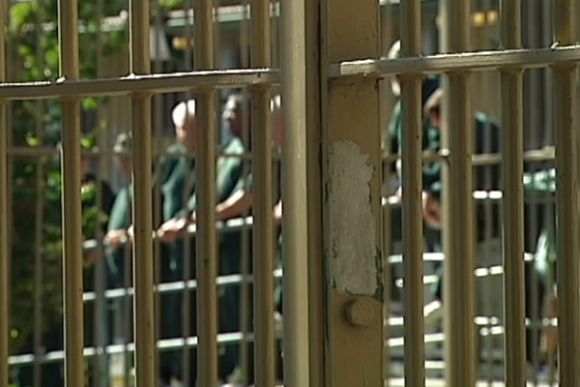The latest prison figures show state and federal government departments are still failing First Australians, as Alan Austin reports.
VIOLENT CRIME in Australia is gradually decreasing. This is good. Except among Indigenous people. Rates of imprisonment Australia-wide are declining, which is also gratifying. But the number of Aboriginal and Torres Strait Islander people incarcerated is still disturbingly high.
The total number of adult Australians imprisoned nationwide has decreased since 2018 by 5.5%, down from 42,974 to just 40,591 in 2022.
In stark contrast, Indigenous adults imprisoned increased by 8.9% from 11,849 in 2018 to 12,902 in 2022. See chart, below.

Of the 12,902 First Nations prisoners last year, 91.0% were male and 9.0% were female.
These are some of the disturbing revelations in the data released last Friday by the Australian Bureau of Statistics (ABS) in File 4517, Prisoners in Australia.
Shameful incarceration of Indigenous people
The proportion of Indigenous people imprisoned in June last year was 31.8% of the total adult prison population. This is the highest since the ABS began publishing the current dataset in 2006. That’s up from 30.5% in June 2021.
This is an appalling indictment on Australia’s governments, institutions and people given that Indigenous Australians are just 3.8% of the total population (latest ABS count).
The historic trend shows a gradual increase in the percentage from 2006 until 2012, and then a seven-year plateau at about 27.4% until 2018. This has risen steeply since then.
This is not due primarily to Indigenous prisoner numbers suddenly surging. Rather, the non-Indigenous numbers have declined significantly.
Further facts about prisoners in Australia
Friday’s report showed the decline in prisoner numbers was much greater among women than men. Women prisoners decreased 9.6%, while men fell just 5.2%.
Total prisoner numbers fell in New South Wales, Victoria, Queensland, South Australia, Western Australia and Tasmania, but rose in the Northern Territory and the Australian Capital Territory.
The number of sentenced prisoners fell by 7.4% over last year to 25,624. Prisoners on remand decreased by 2.1% to 14,864. (The ABC published a detailed analysis of this last Friday.)
Commenting on the gratifying decline in prison populations overall, ABS head of crime and justice statistics, William Milne, said:
“This is the lowest count of prisoners since 2017. COVID-19-related restrictions, which began in March 2020, may still be impacting criminal activity and the justice system. Prisoner numbers dropped for nearly all offence types, including illicit drug offences (-13%), burglary (-11%), and robbery (-12%). In contrast, prisoners in custody for sexual assault offences increased by 4% over the year.”
Political responsibility
The change in prison populations – for any racial group – is not something readily attributable to one side of federal politics, as are, for example, incompetent fiscal management and economic corruption.
Some federal decisions and policy changes can impact prison populations, such as funding for mental health, but decisions by state governments have a more direct bearing. State governments manage most police forces, prison systems and welfare delivery to marginalised groups.
Many factors are outside the remit of any government, state, federal or local, such as community prejudice against minorities and surges in drug availability and usage.
Causes of Indigenous incarceration
This has been a blight on Australian society for more than 200 years. The reasons are complex, difficult to discern and not readily agreed upon. If the causes are not understood, then naturally solutions will be elusive.
There is a strong case that the best shot Australia ever had at dramatically reducing, if not ending, Indigenous disadvantage was through the replacement in 1990 of the Department of Aboriginal Affairs with the Aboriginal and Torres Strait Islander Commission (ATSIC). This gave elected Indigenous representatives the unprecedented authority to determine policies relating to their people and actual control over the allocation of substantial material resources.
This, along with land rights legislation and other preceding reforms, laid the foundation – at long last – for Indigenous leadership to emerge and strengthen and, in due course, address the multiple challenges.
The Howard Coalition Government, which had always been hostile to Indigenous aspirations, abolished ATSIC in 2004.
In his groundbreaking volume, Why Warriors Lie Down and Die, Richard Trudgeon analysed the reasons for the social evils of Arnhem Land’s Yolngu communities, including those which lead to incarceration.
One factor is what he calls the “multigenerational legacy of trauma”. Others are the diminished authority of traditional leaders, land tenure insecurity, confusion about how the economy works and non-recognition of ancient law that once brought peace and prosperity.
If Trudgeon and the many who agree with him are right, ATSIC should have been given much longer than its shaky 13 years to settle into its role.
Indigenous incarceration looking ahead
To the extent that criminal misconduct arises from economic disadvantage, pressure is now on the Albanese Government to address this through adequate funding of education, physical health, mental health and community facilities, particularly in remote regions.
Money, however, will not fix the loss of Indigenous culture, language, identity, self-confidence, pride and optimism for the future.
Let’s hope the Voice to Parliament currently being debated assists here. It should be given a fair chance.
Alan Austin is an Independent Australia columnist and freelance journalist. You can follow him on Twitter @alanaustin001.
Related Articles
- Indigenous communities suffering most from Australia's climate inaction
- Class action may reform laws for the 'forgotten children'
- Thirteen years on from 'Sorry' and we need to do more for our Indigenous children
- Makarrata: A vision of reconciliation for Australia
- JEFF MCMULLEN: A thirst that ends lives
 This work is licensed under a Creative Commons Attribution-NonCommercial-NoDerivs 3.0 Australia License
This work is licensed under a Creative Commons Attribution-NonCommercial-NoDerivs 3.0 Australia License
Support independent journalism Subscribe to IA.















